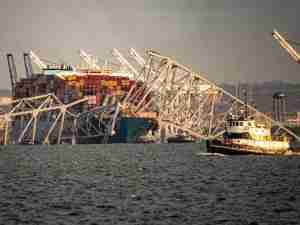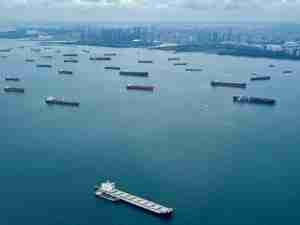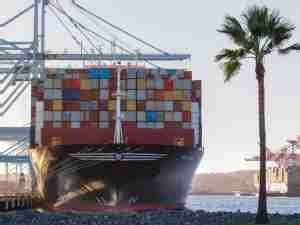"The current dry bulk order book represents about 54 percent of the tonnage on the water," the credit ratings agency said.
"Most of these new vessels are due for delivery in 2011 and 2012, creating a supply-demand imbalance that will depress freight rates," it said in a report.
Moody's said that while scrapping, the postponement or cancellation of deliveries and port congestion were likely to alleviate some of the pressure on freight rates, those "traditional safety valves" were unlikely to absorb all of the excess supply.
"Consequently, we foresee negative pressure on the industry for the next 18 to 24 months," it said.
The Baltic Exchange's main sea freight index, which tracks rates to ship dry commodities, hit its lowest level in two years last month and has continued to remain volatile in recent weeks.
The index, or BDI, which tracks the cost of shipping key commodities such as iron ore, cement, grain, coal and fertiliser inched higher on Tuesday to 1,262 points.
"We expect freight rates to fall substantially in 2011, because a large number of new vessels are expected to be on the water when the dry-bulk shipping growth rate is slowing down," Moody's said.
"In our opinion, this will constrain the BDI between 1,000 and 2,000 points, levels at which the less-efficient companies will struggle to survive."
Moody's said the earnings prospects of dry bulk companies in 2011 and 2012 will largely depend on their exposure to the spot market.
"Operators whose charter policies are based predominantly on long-term contracts will see less pressure," it said.
Moody's said the industry's long-term prospects were more favourable as it was expected to benefit over the next decade from rising commodities demand in emerging economies.
"Given the industry's high degree of fragmentation and the innate speculative nature of its players, we are sceptical that market participants will be able to exercise the necessary restraint to prevent the build-up of excess capacity," it said.
"Consequently, we expect freight rates to remain highly volatile over the next decade, driven by large swings in supply as new vessels come on the water." (Reuters)










